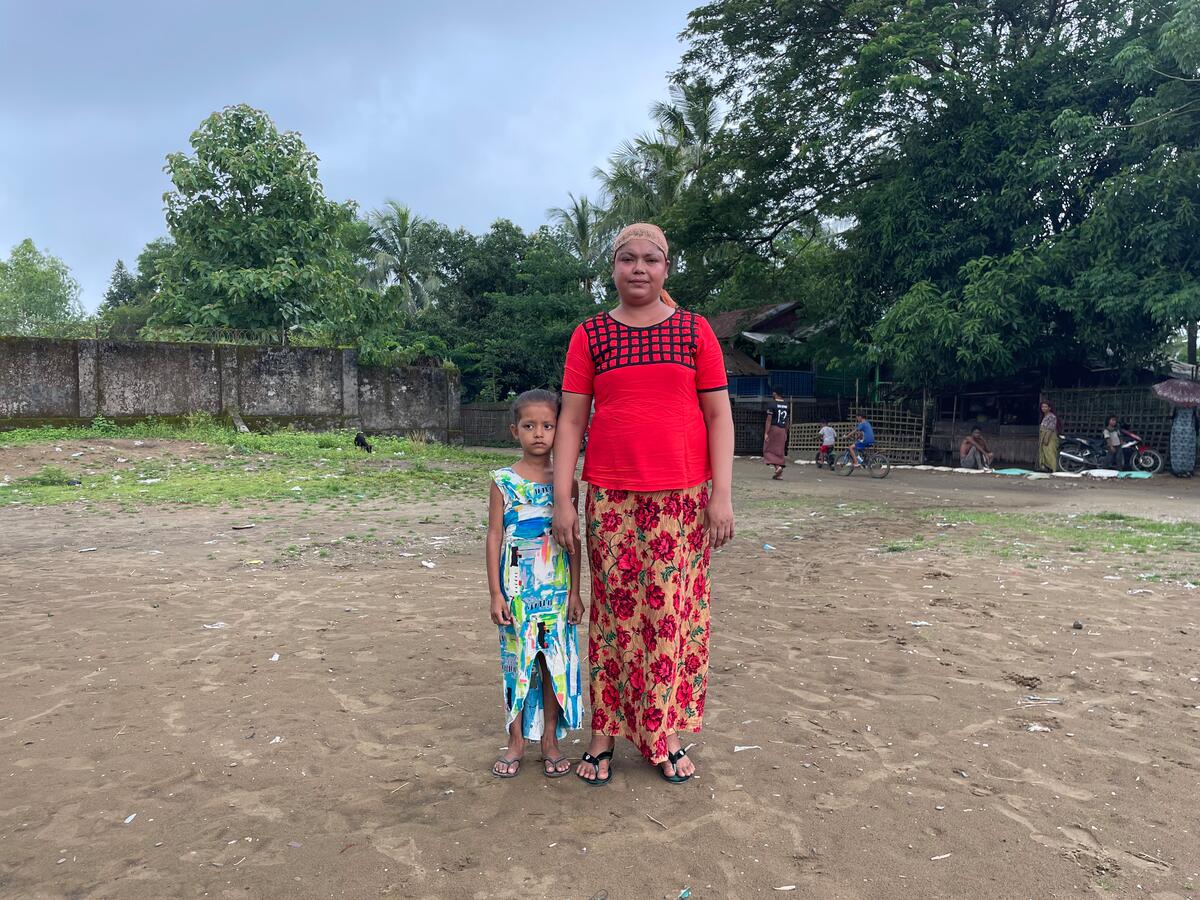Hundreds of Congolese flee violence in North Kivu
Hundreds of Congolese flee violence in North Kivu

KINSHASA, Democratic Republic of the Congo, April 24 (UNHCR) - The UN refugee agency on Thursday halted the distribution of aid to displaced people in Democratic Republic of the Congo's (DRC) North Kivu province amid a new eruption of violence.
UNHCR had also been helping the government register new arrivals at sites for internally displaced people (IDPs) in the Rutshuru area, some 70 kilometres north of the provincial capital of Goma. The hundreds fleeing fresh fighting since the weekend add to an estimated IDP population of some 860,000 in North Kivu.
But this operation was also suspended on Thursday amid reports of new fighting between government soldiers and fighters from the rebel Democratic Forces for the Liberation of Rwanda (FDLR) movement near the Kinyandoni Anglican IDP site. Further details were not immediately available.
The latest round of displacement in North Kivu came after a splinter faction of the FDLR reportedly raided villages late Saturday near the town of Kiwanja. Aid agencies report that one woman was killed during the attacks. Clashes were reported between the government and rebels in the area on Sunday.
UNHCR staff in the agency's Rutshuru field office said they had visited IDP sites in the Rutshuru area to find out more about the latest attacks and to assess the needs of the displaced. While hundreds have been registered as displaced, aid workers said IDPs were continuing to flock to sites around Kiwanja.
The majority are staying in public buildings due to a shortage of shelter. "We have many new arrivals," said a UNHCR report from Rutshuru. It said the new arrivals had been receiving food from people displaced in earlier waves of violence.
Humanitarian agencies, meanwhile, still face difficulties accessing civilians at risk. The newly arrived IDPs had harrowing tales. Some said their homes were destroyed and their possessions looted, while others had lost touch with their children. Most of those arriving in the IDP sites are women and children.
"Medical assistance is of vital importance," said the UNHCR report from Rutshuru, adding that suspected cases of cholera had been reported.
The displacement in the Rutshuru area comes three months after the signing of an accord in Goma between the government and rival armed groups aimed at bringing lasting peace to the eastern region after more than a decade of conflict. The accord had generally been holding but tensions remained high.
On Wednesday, a coalition of 63 international and Congolese human rights groups warned that there had been little progress toward lasting peace in eastern DRC three months since the signing of the Goma accord, which they urged the signatories to fully implement. They also called for the appointment of an international human rights adviser to address abuses in the east.
A peace agreement in 2003 formally brought years of strife to a close, but fighting flared again in North Kivu in 2003. There are an estimated 1.3 million IDPs in the country and some 350,000 Congolese refugees overseas.
By David Nthengwe in Kinshasa, Democratic Republic of the Congo









